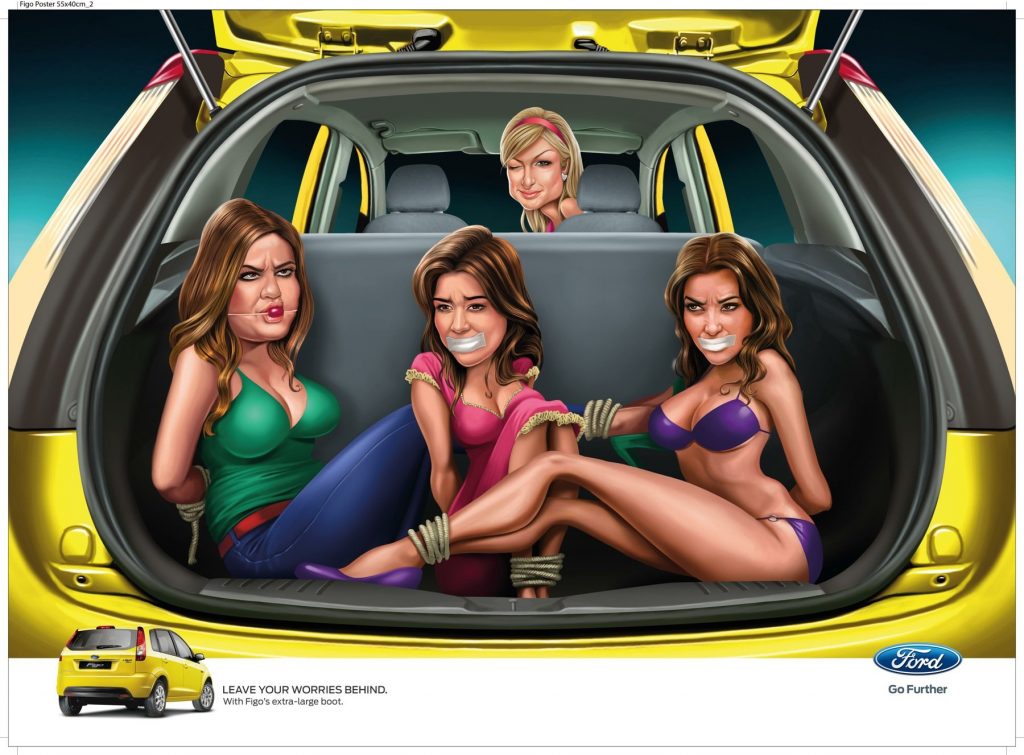In 2013, Ads of the World presented a controversial ad campaign for the Ford Figo produced by JWT India.
Even more concerning than the content of the ads themselves, which portray celebrities being kidnapped by their ‘competition’, is that during the outrage that resulted, it was revealed the campaign was never meant to run. It had never been approved by Ford, or even pitched.
All the creative team wanted was to create a stir. They’d submitted the ads to an award show, and they believed the attention would give them an advantage. Instead, it cost them their jobs.
It wasn’t the first scam ad designed with the sole purpose of garnering industry accolades. In 2001, Cannes Lion Jury President Bob Isherwood wrote to his fellow judges, calling on them to denounce such campaigns. It was a timely warning – the previous year, three winning campaigns had come under investigation, with two being forced to return their trophies.
Even so, the issue has only become worse.
Production companies and agencies alike have been found guilty of producing ‘director’s cuts’ of content, promoting commercials within the industry that vary from those approved by clients. Others, especially in countries like Brazil and Singapore where industry prescence is small, but successful creative leads are treated like stars, people are willing to take risks in order to boost their reputation.
In the days of viral media, advertisers are putting the focus on reaction over action, on buzz over brand, and it’s culminating in what King Kong founder Sabri Suby calls the advertising equivalent of fake news.
In an opinion piece posted by Mumbrella on July 20th, Suby revealed that instead of using big data to improve campaign strategy and strengthen relationships with clients, agencies are increasingly focusing on trivial, and sometimes false information that sounds exciting, but provides no tangible value.
“While the industry likes to bang on about data and its myriad opportunities, those in the know also realise it can open them up to serious criticism and accountability.
So, they play it down, count only metrics that look good regardless of whether they increase revenue, or worst of all, use vanity metrics to get away with work they know is sub-par or designed for anything but increasing their client’s sales and revenue.”
But while the industry is responsible for its current shambolic state, Suby and others say change will only come when brand marketing leads start kicking ass and taking names.
Rather than letting agencies recount viewing figures, social media reactions, or total downloads, they must be prepared to remind advertisers of their responsiblity. To remind them of the two primarily purposes of any ad campaign – greater brand awareness and a financial return – and that they are answerable if they fail to deliver on either.
More broadly speaking, those responsible for choosing or working with agencies must ensure they stay updated on the increasing amount of scandals surrounding scam ads, and be prepared to fire or reject agencies openly on such grounds.
When attention, accolades and profit are all taken away, only then will scam ads disappear as well.

